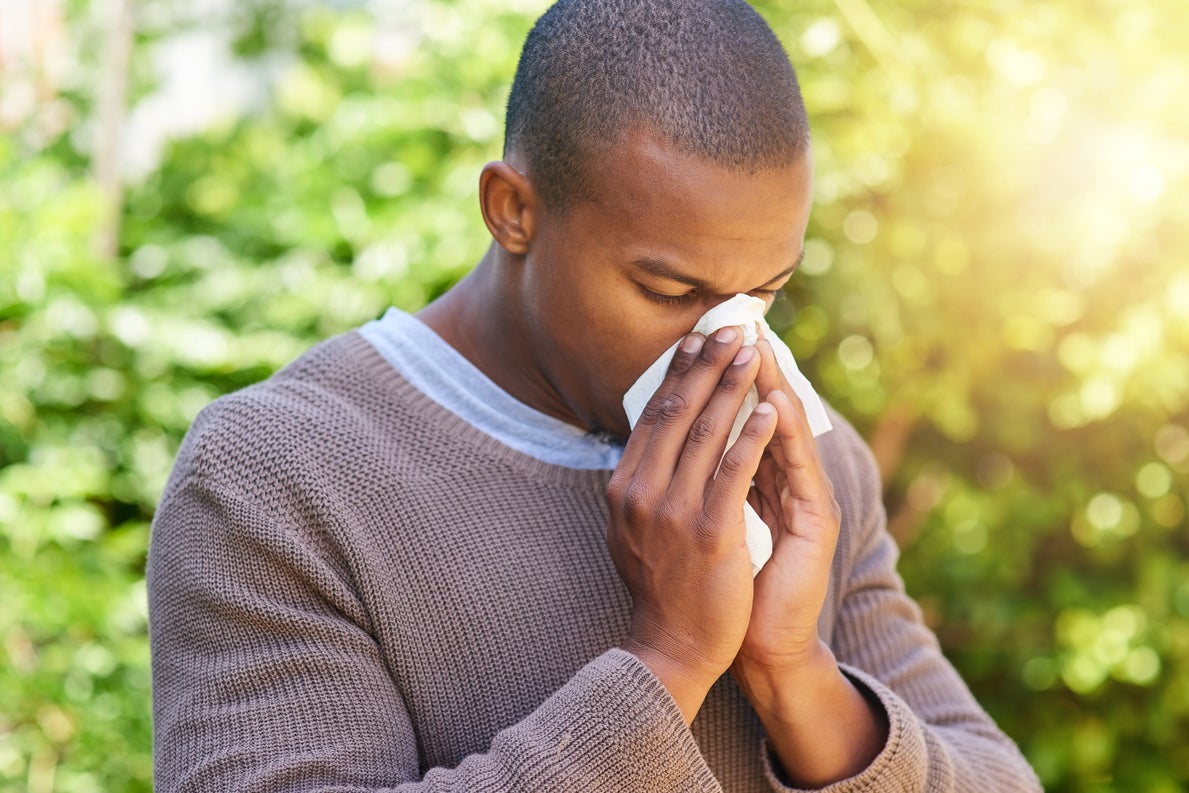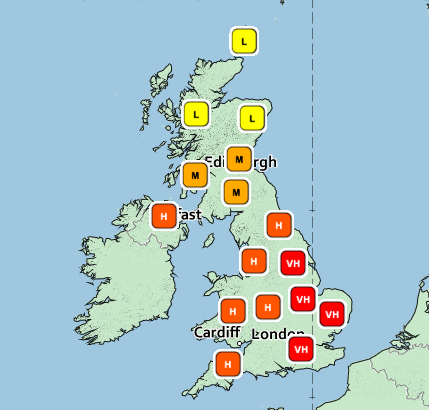Pollen levels to reach extreme highs on Father's Day, Met Office warns
Keep the antihistamines close by as the pollen count rises this weekend

Anyone who’s planning on spending this year’s Father’s Day outside in the sunshine might want to reconsider if they or a family member has hay fever.
Pollen levels are expected to reach extreme highs over the coming days in some parts of the UK, which will likely affect some people’s plans to make the most of the great outdoors.
The Met Office has released a forecast of the pollen count over the coming days, which warns that people living in the east and south-east will be most affected.
According to the forecast, the pollen count on Sunday is going to be very high in London, the East Midlands, Yorkshire and the Humber and the east of England.
However, things are going to become even worse at the beginning of next week, with pollen levels set to also increase across the south-west, north-west and north-east of the country from Monday.
The reason for heightened hay fever symptoms is the rise of grass pollen, which is typically more present from mid-May until July, as Met Office spokesman Grahame Madge explained in a statement.
“As the season progresses more grasses come out and produce pollen,” he said.

He stated that while very high pollen levels are expected on an annual basis, sometimes they can occur monthly as well during the peak of summer.
“It is not unheard of but it is the highest category and sufferers need to take account of that," he continued.
According to the Met Office, 95 per cent of hay fever sufferers will experience allergic reactions to grass pollen.
A number of alcoholic beverages such as beer, wine and several spirits contain histamine, which can trigger allergic reactions in people who have hay fever.
While one can take antihistamine medication to counteract the effects of hay fever, there are numerous foods that can help do so naturally when consumed.
Eating foods such as onions, garlic, ginger, pomegranate and apples could help reduce your symptoms, as outlined by holistic health coach Alison Vickery.
Another way that you could reduce your chances of being struck down by hay fever is by making sure that you keep clean.
If you’ve spent time outdoors, make sure that you shower and wash your hair when you arrive home.
You should also clean the clothing that you wore outside as soon as possible to remove any pollen that’s become attached.
It may be worth consulting with a map that details where the highest concentrations of pollen can be found to keep your allergic symptoms at bay.
Join our commenting forum
Join thought-provoking conversations, follow other Independent readers and see their replies
Comments
Bookmark popover
Removed from bookmarks